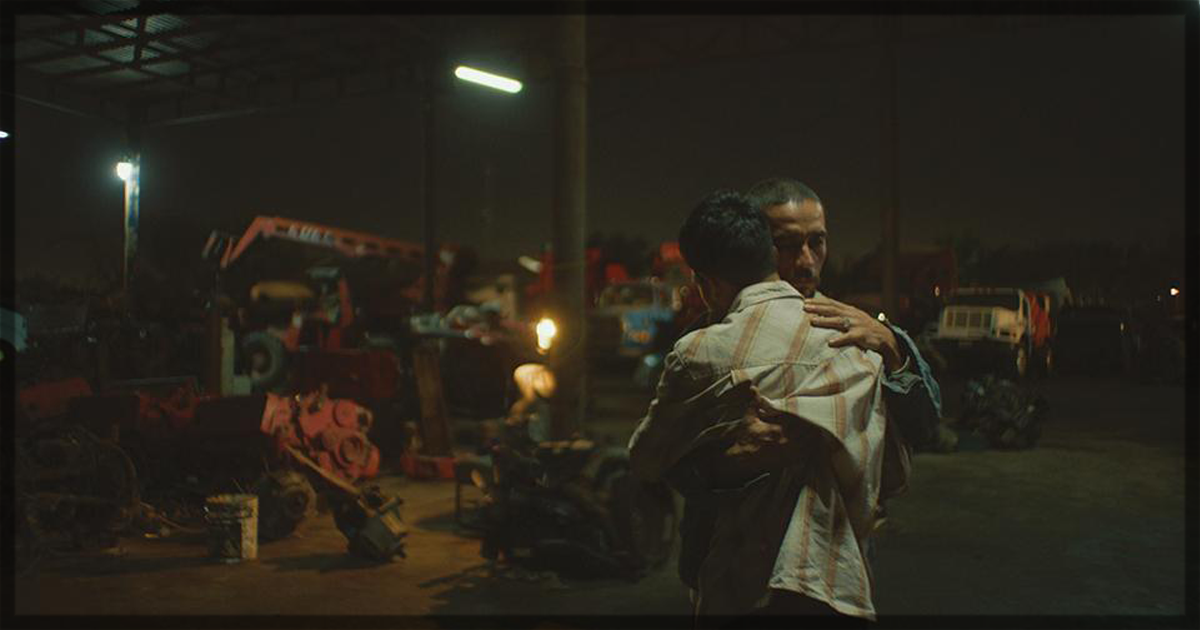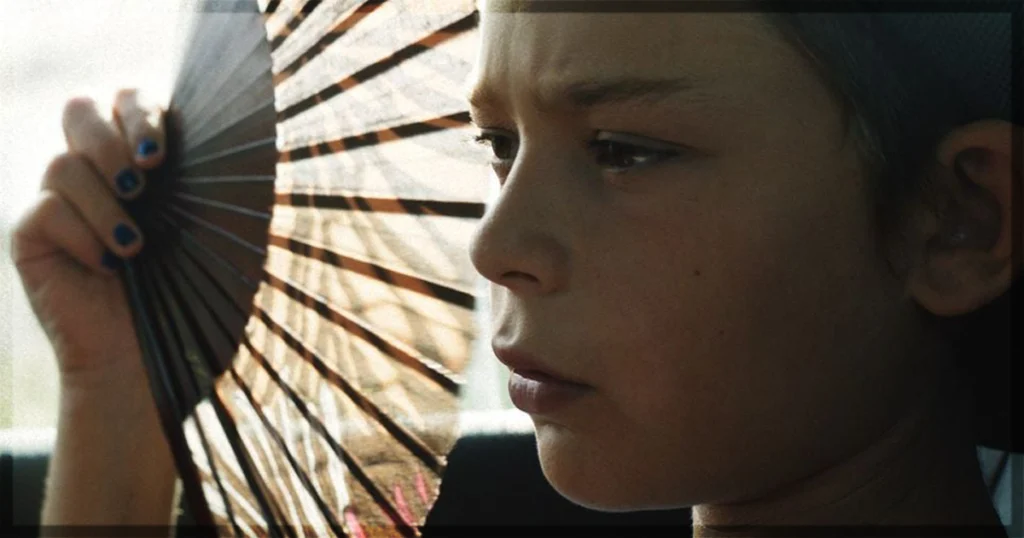Winner of the Orrizonti Award for Best Film at the 2025 Venice International Film Festival, On the Road (En el Camino) is, at its core, a poignant tale of repressed desire bursting in the most undesirable of places. It’s the fifth feature from Mexican writer-director David Pablos, and it’s the first film of his I have seen, yet it’s fairly familiar in its exploration of queer erotica and the ever-frantic question of one’s personhood. Its major draw is that it doubles as a propulsive road movie and an unlikely romance heightened by a sense of danger; it’s basically a surefire hit to anybody who loves neo-noir cinema.
Comparisons with Brokeback Mountain are to be expected and understandable, though I didn’t see that thread until much later. Instead, what the movie’s particular allure instantly brings to mind is another erotic thriller, that of Brazilian filmmaker Karim Aïnouz’s entry at last year’s Cannes, Motel Destino, which I personally consider as one of 2024’s sleeper delights. Both movies are infused with a neo-noir spirit, their visuals drenched in a gritty neon palette and punctuated by occasional full frontal. Both narratives center on a young male lead on the run, who finds himself in a fascinating dance of power and desire after running into an elder figure who’s hardly a role model but an enigmatically welcome presence nonetheless.
The story is set in a trucking community in northern Mexico, a particularly macho landscape that Pablos and cinematographer Ximena Amann shot with exceptional texture and a kind of handheld observation you would typically ascribe to a documentary movie, featuring extensive, deadly highways and the many inner lives that inhabit and pass through it. A few seconds before the title card drops, the movie offers a bleak foreshadowing: We find the young drifter Veneno, played by Victor Prieto, kneeling on parched earth. He’s soaked in petrol and about to be set aflame by an unidentified figure, likely someone from his past. Pablos intermittently returns to this image to magnify the movie’s grisly, mournful atmosphere and its looming threat.
Veneno, it turns out, is trying to outrun specters of his violent past; He has nowhere to go, leaping from one seedy place to another. He’s a sex worker, servicing truck drivers in search of release at rest stops or at a roadside gay club he frequents. He also sells coke for extra money. After a client ditches him, he comes across a trucker named Muñeco, played by Osvaldo Sanchez, in a cantina that doesn’t mind having customers order breakfast while snorting illegal substances. Muñeco is a family man in his 40s, though he doesn’t have a healthy relationship with the mother of his children, largely because he’s an absentee father and because of his drug addiction, the only thing that keeps him awake on the road. He doesn’t like strangers in his 18-wheeler truck, or so he says, but Veneno somehow convinces the older drifter to give him a lift to a hyper-masculine trucking network across northern Mexico. They recite the trucker’s prayer: “Give me Lord, firm hand and watchful gaze to reach my destiny safely without harming anyone.” But what follows, as the film’s opening frame suggests, is a long, winding trip into an unforgiving environment, into the very heart of a criminalized community.
But despite it all, romance, or at least something beyond the fleeting and transactional, flourishes between these two lost souls: One who isn’t ashamed of his sexuality, and one who stays on the down-low yet curious; both on a journey of self-discovery and change, for better or worse. It’s immediately transparent from the outset that Pablos intends to harness not only the difference in age and experience but, more importantly, the power imbalance between his protagonists, especially when the narrative begins to pivot to riskier corners, as Veneno runs into the trucker who ditched him early in the movie, resulting in a fatal stabbing. This is complicated by backstories conveyed through a series of slick flashbacks, in which the director leans on the abstract. Our possible lovers, then, swiftly turn into outlaws in a world that has already rendered them outsiders.
Pablos gorgeously photographs his actors with real intimacy and tension, especially or even when they’re not naked, and the newcomers deliver equally magnetic and carnal performances. Yet there’s also a suggestion of sexual gratification, as the director refuses to shy away from phallic symbolism and a leering lens. In many ways, the film highlights how toxic masculinity pushes queer desires, physical or otherwise, into the shadows of already-desolate landscapes. For one, Muñeco is only able to express and accept intimacy when he’s under the influence, and the film intimates this kind of contradiction that is not only personal but, more crucially, cultural and sociopolitical.
This is not merely a story about identity and connection, it also calls into question the kind of labor that we as a society consider as criminalized work, the kind that sustains marginalized communities. This is a movie with a familiar humanist impulse, and one that cuts narrative corners to service a schmaltzy endnote, something that has to do with the so-called journey-not-the-destination dramaturgical philosophy. Notwithstanding the deftly immersive mounting and excellent acting, what prohibits me from completely appreciating On the Road is the distance that I have from the specific experience of queerhood that it depicts, which is to say that I cannot imagine this story to end any other way than the way it did. The coda registers as Pablos indulging more in a kind of wishful thinking rather than in an optimistically realistic alternative.
On the Road (En El Camino) recently played at the Venice Film Festival.
Learn more about the film at the Venice site for the title.
You might also like…
‘Sweetheart’ Film Review: A Predictably Endearing Riff on the Coming-of-age Genre


